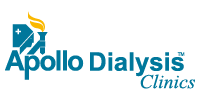Chronic Kidney Disease Prevention: The Role of Public Health Initiatives and Community Programs
Chronic Kidney Disease (CKD) is a chronic condition found all over the world, but it is rarely diagnosed until later stages. This global epidemic is controllable with vigorous public health measures and strategies in the community to enhance early diagnosis and modification of CKD risk factors. These programs provide education, access to care, and other measures to minimize the impact of CKD and enhance the health of the population.
Understanding Chronic Kidney Disease
Chronic kidney disease is a progressive loss of the kidneys’ ability to remove waste and fluid from the blood. Such a condition is associated with numerous risks, including heart disease, end-stage renal disease, and death. However, as the earlier stages of CKD are often asymptomatic, it is essential to diagnose it in its early stages so it can be treated effectively and to prevent it from progressing.
Kidney Disease Risk Factors
There is evidence to suggest that a variety of factors increase the risk of CKD development, including
- Diabetes: A diabetes condition damages and terminates all chances for a healthy kidney, as continuous high blood sugar levels are detrimental to the kidney’s health and effectiveness. Thus, chronic kidney disease is most commonly caused by diabetes, most likely caused by a chronic kidney disease.
- Hypertension: Another health problem that deteriorates kidney health is hypertension. This development of hypertension adds more damage to an already compromised kidney.
- Family History: Family history is one of the most important things that determines the risk of CKD due to genetic predisposition.
- Age: Age in particular has an adverse effect on kidney health; eventually, over time, after age 60, a greater risk of chronic kidney disease is noticeable.
- Lifestyle Factors: Unhealthy lifestyle choices, including obesity, lack of exercise, poor dietary habits, and smoking, lead to a decrease in the overall health of the kidneys.
- Ethnicity: On the contrary, certain or specific ethnicities, such as African Americans, Native Americans, and Mexicans, have suffered more from CKD than the other ethnicities.
These risk factors can easily be removed with the help of CKD programs in order for the public health side models to reduce the incidence and severity of CKD.
Why Early Detection of CKD Matters?
The Role of Screening in the Management of CKD in Countries with Limited Resources Screening is vital due to the enhanced morbidity, mortality, and decreased quality of life when diagnosed and treated at later stages. Population-based screening in the high-risk populations for CKD will assist in identifying CKD in its earliest stages, where intervention can be instituted. The recommended strategies are:
Creatinine Examinations for Estimation of Kidney Function: It includes GFR evaluation.
Albuminuria: This is a kidney ailment determined by the quantity of albumin or protein present in the urine.
Hypertension Screening: The prevalence of hypertension in the CKD population is a well-studied factor of kidney disease progression. If CKD is recognised in its early phases, a combination of altering one’s way of life, taking medicine, and regularly monitoring one’s health can also prevent disease progression.
CKD Prevention Initiatives in the Community
Public health initiatives are critical to raising awareness and addressing risk factors for kidney disease. Key approaches include:
- Awareness Drives: In this, education drives about CKD, which factors are risk factors for CKD, and how early detection is important. These drives utilise various channels, from social media to local events and health centres, to attract a wide range of people.
- Screening Programs: Targeted screening programs aim at high-risk populations, including those living with diabetes or hypertension. These programs are free, and the subsequent care provided ensures everyone gets to have them even in underserved areas.
- Public Policy: Organizations such as the American Kidney Fund lobby for specific policies that promote kidney health, including measures to reduce salt in processed foods, regulate tobacco, and ensure health care is affordable for everyone.
- Education of Health Care Practitioners: Education of health care professionals enhances their knowledge on the screening, diagnosis, and the management of CKD. This includes continual education of healthcare providers on the most up-to-date guidance and standards of care for the prevention and treatment of CKD.
CKD Community Programs for Prevention
Community-based programs also build on public health efforts in ways that are more hands-on and tangible, and they provide citizens with a stake in healthy practice. Such initiatives harness local resources to address the risk factors for kidney disease and its detection.
- Health Habits: Provided through community centres and groups, promoting healthy habits. These include diet-specific workshops that specialize in nutrition that is safe for your kidneys, exercise classes to encourage general movement, and groups to assist with quitting smoking.
- Mobile Health Clinics: Essential services that bring check-ups, advice, and referrals right to some of our most neglected sectors. This approach ensures that help reaches rural or remote communities that lack convenient access to healthcare services.
- Support Groups: Support groups are crucial for patients living with CKD and their families as they provide a platform for sharing experiences, finding information, and receiving emotional support. Many of these groups work with health care professionals to help people manage living life with CKD, which creates a sense of community and compassion among individuals.
- Collaboration with Schools and Employers: Schools and employers partner with us to promote kidney health through wellness initiatives, health fairs, and health education. Such partnerships promote prevention of issues.
Conclusion
- Chronic Kidney Disease still stands as a major public health problem, whilst it remains preventable and treatable given the right approach. Public health and community initiatives are very important in making people aware of the risk factors associated with kidney disease and early detection. Focusing on prevention and collaboration between parties will show a great reduction in the overall burden of CKD, improving health and well-being throughout communities globally.
- An end must be drawn from all possible efforts down toward ushering in a bright future without CKD—once again being a silent epidemic, but now as a preventable and easily managed public health and community activity.

